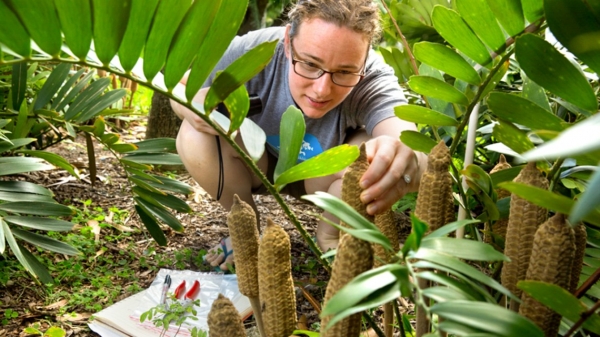Humidity is as important as scent in attracting pollinators to a plant, new Cornell-led research finds, advancing basic biology and opening new avenues to support agriculture.
Humidity is as important as scent in attracting pollinators to a plant, new Cornell-led research finds, advancing basic biology and opening new avenues to support agriculture.
In a study published May 7 in Current Biology, a team of Cornell researchers and colleagues at Harvard University and the Montgomery Botanical Center found that the weevil responsible for pollinating the plant Zamia furfuracea was just as sensitive to humidity as to scent.
“The world of plant-insect interactions was drastically changed by the work that was done on visual and scent cues,” said first author Shayla Salzman, a postdoctoral National Science Foundation fellow in the School of Integrative Plant Science Plant Biology Section, in the College of Agriculture and Life Sciences. “And now we’re just starting to realize how many other factors are playing a role in plant reproduction and impacting insect decision making, pollination and success.”
Read more at: Cornell University
Study first author Shayla Salzman examing Zamia furfuracea ovulate cones at the Montgomery Botanical Center in Coral Gables, Florida. (Photo Credit: Rory Maher)




